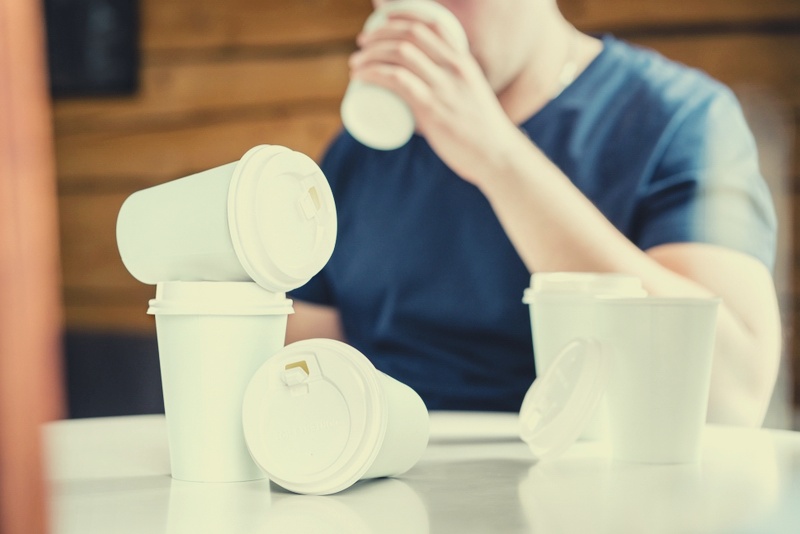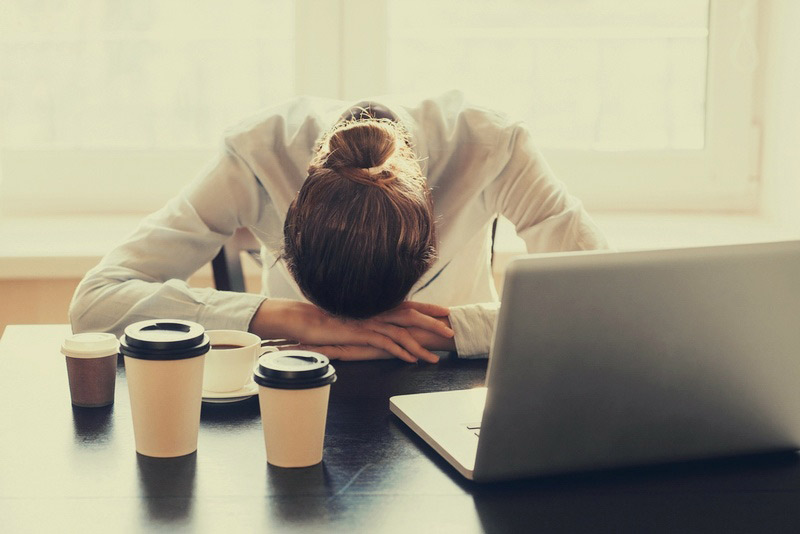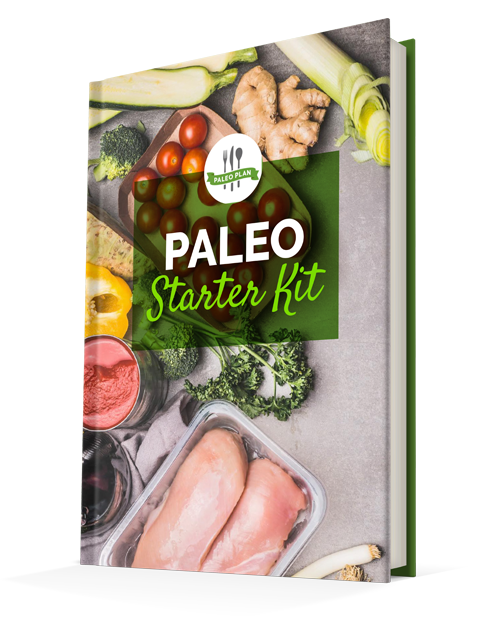
There are mixed opinions in the health world on caffeine. Some say coffee in moderation can actually be healthy, while others say that even one cup a day is problematic. So, who’s right?
What Is Caffeine, Really?
Caffeine is a stimulant that primarily impacts the nervous system. In America, 90 percent of adults consume daily caffeine in one form or another. (1)
When caffeine reaches the brain it can increase alertness, boost energy levels, and can even relieve certain types of headaches, which is why it’s sometimes added to over-the-counter pain relievers.
Research shows that some levels of caffeine can be beneficial, as we’ll explore below, but it can also have negative effects. While there is no clear-cut answer on caffeine in general, one thing is for sure: an excessive amount, like that found in energy drinks or diet pills, can be dangerous.
Caffeine’s half-life is approximately five hours, meaning that five hours after drinking it, you have halved the amount of caffeine left in circulation.
When you drink coffee or other caffeinated beverages, it first hits the stomach. From there, caffeine is absorbed into the bloodstream, and continues exerting its energizing effect in the body for up to 10 hours after consumption. This is because caffeine’s half-life is approximately five hours, meaning that five hours after drinking it, you have halved the amount of caffeine left in circulation. (2) Example: If you drink a 200 milligram cup of coffee at 9 a.m., by 2 p.m. you could still have as much as 100 milligrams of active caffeine in the body.

However, caffeine doesn’t equally dissipate in the bloodstream. Peak feelings of caffeine occur 30 to 60 minutes after consumption and begin declining after. So, even though you may have some level remaining many hours later, this is why you may desire more coffee just a few hours after your first cup. Since caffeine stays in the body for many hours after consumption, some people experience sleep disturbances from it even if the last cup they had was in the early afternoon.
The liver metabolizes caffeine and breaks it down, and then it is eliminated via the kidneys and urine. You can’t store extra caffeine for later. So, if you drink a higher amount, it will be excreted faster, which can sometimes lead to an overstimulated feeling on the bladder.
Because caffeine is a stimulant and the body can become dependent on it, reducing or quitting can lead to withdrawal symptoms, typically a headache or excessive feelings of tiredness. While some may never notice symptoms, others can feel their loss of caffeine for a few days to as much as a week.
Research indicates that 400 milligrams is considered to be a commonly safe intake amount. Some people will be intolerant of that amount, while others will be able to consume significantly more without negative symptoms. (3) Like other stimulants or foods, caffeine tolerance is highly individual.
Health Benefits of Coffee
While some people like to claim that caffeine is a “drug” and is therefore bad for you, it has some research-backed health benefits. For this context, we’ll only be considering caffeine in coffee.
Note: Caffeinated soda is unhealthy because of the soda component. Energy drinks or caffeine pills are not proven safe and contain artificial ingredients.
1. Coffee Can Increase Energy Levels and Mood

While this is one of the primary reasons that people drink coffee – for added energy – it happens because of the way that coffee impacts the brain. Caffeine blocks adenosine, an inhibitory neurotransmitter, and helps to boost dopamine. This boost can lead to increased energy levels and even feelings of happiness and balanced mood. (4, 5)
It can also help to reduce the risk of depression by as much as 20 percent, specifically when four or more cups are consumed on a regular basis. (6)
2. Coffee Can Boost Cognitive Function
Coffee helps make the brain more mentally alert, which can increase work performance, school performance, and more. (7) It can even help improve physical reaction times by making the brain fire faster. (8)
3. Coffee May Protect Against Alzheimer’s
While caffeine can boost immediate cognitive function, it can also support long-term mental agility, including memory. Caffeine can also help to protect against Alzheimer’s disease, for which there is no cure. (9) It also reduces the chances of developing dementia. (10)
4. Coffee Can Help Burn Fat

Caffeine can increase metabolic rate by as much as 11 percent, naturally increasing the body’s ability to burn fat. (11, 12) It works by telling the body to break down fat cells for energy. (13) However, the fat loss benefits of caffeine are better used when it’s a “new” introduction to the diet, because people can become tolerant to its presence and lose the fat-burning potential. (14) For some, caffeine can lead to a reduced desire to eat, which can work in a roundabout way to promote fat loss, but research shows this to be true more for men than women, so it can’t be universally applied. (15)
5. Coffee Can Improve Physical Performance
Caffeine can improve a person’s physical performance by an average of 12 percent. (16) It can boost gym time, exercise stamina, or tolerance for other physical activity. It works best when consumed about 30 to 60 minutes before exercise.
Not only can it increase exercise ability, but it can also help to reduce the chances of developing Parkinson’s disease, most likely because it boosts dopamine receptors in the brain. (17)
Side Effects of Coffee
While caffeine certainly isn’t bad for everyone, it can negatively impact people in a few ways. First, some people can be sensitive to caffeine and can tolerate smaller amounts, or none at all, compared to the average person. Second, overconsumption can result in some negative symptoms.
The following six issues are the biggest considerations when it comes to deciding whether coffee is helping you or hurting you.
1. Increased Stress and Anxiety

The flipside of caffeine’s ability to boost mental alertness is that it can cause the brain to be on high alert, resulting in anxiety. (18) Caffeine increases epinephrine, also known as adrenaline, in the body. This is also referred to as the hormone that controls the “fight or flight” response. (19, 20)
The two wings of the nervous system cannot be “on” at the same time, so when you’re trapped in fight or flight mode, you’re unable to relax into “rest and digest.” The digestive system can’t work efficiently and the hormones that control sleep and repair take a backseat.
For some, this effect will feel more pronounced than others, and increase symptoms associated with anxiety, like rapid breathing or blood pressure. (21) If you notice that coffee increases your anxiety, or causes it entirely, you’re probably sensitive to caffeine and should consider cutting back.
2. Insomnia
You may love coffee and caffeine and feel no ill effects from them during the day, but what about at night? If you’re having trouble falling asleep at a normal bed time, or staying asleep throughout the night, caffeine could be to blame.
Research shows that regular upper levels of caffeine can lead to a longer time to fall asleep and reduce the total amount of time spent sleeping. (22) While most caffeine will be fully out of the average person’s system within five to 10 hours, some people who are more sensitive may have it in their bloodstream for many hours more. (23)
If you experience insomnia or sleep issues and haven’t tried eliminating caffeine for at least a few weeks or a month, consider switching to decaf to see if it improves your sleep quality.
3. Heartburn, GERD, and IBS
Research shows that caffeine can worsen heartburn, reflux, and gastroesophageal disease (GERD) in some individuals who are sensitive. (24) Caffeine can relax the muscles in the digestive tract, which can result in more digestive problems. Lower in the digestive tract, it can also exacerbate irritable bowel problems and lead to persistent problems with diarrhea or urgency. (25)
4. Fatigue

While caffeine can boost energy levels in the short-term, for those who become dependent, it can lead to greater fatigue levels in general, often causing people to heavily rely on caffeine for their energy. (26) This can be a destructive cycle of dependence and reliance.
While there’s nothing wrong with enjoying the energy boosts from caffeine, if you rely on it for every speck of energy, it might be time to cut back. Instead, boost your body’s metabolism by supporting a healthy circadian rhythm and adrenal glands. This happens by following a regular sleep routine, getting seven to nine hours of sleep each night, and having a healthy way to address lifestyle stressors.
5. Bladder Irritation
Caffeine can stimulate the brain, but it can also stimulate the bladder and irritate it, resulting in urinary urgency or frequency. This is especially noticeable in older individuals or those who suffer from urinary incontinence. (27)
How Do You Know if Coffee Is Right for You?
People who claim that coffee is harmful do so by citing that it increases blood pressure and the risk of developing heart disease. While it can mildly increase blood pressure, this effect doesn’t remain with regular intake. Additionally, research shows that coffee and caffeine reduce risk of heart disease and stroke. (28, 29, 30, 31) The decision to drink coffee is an individual one, but it isn’t a universally “bad” decision.
Healthy Coffee Habits

There are plenty of healthy, balanced ways to enjoy coffee in your lifestyle. If you’re not sensitive to it, as many as two to three cups of coffee can be fine on a daily basis.
1. Choose Organic
If you’re going to drink coffee, be sure to choose organic coffee that has been processed without chemicals or artificial flavorings. If you’re choosing decaf because you like the taste of coffee but need to minimize caffeine, choose a Swiss water-processed version, since other methods of eliminating caffeine rely on chemicals.
2. Pair with Protein and/or Fat
Caffeine in coffee can have less of a stimulant effect and produce a more balanced energy supply when paired with protein or fat, or both! Bulletproof coffee is one way to do this, but you can also add collagen or coconut cream if you don’t want to go full bulletproof.
3. Choose a Better Creamer
If you like the taste of creamer in your coffee, opt for coconut cream or nut milks instead of preservative-packed creamers.
4. Stop Drinking Before 12 P.M.
If you’re caffeine-sensitive, drink your coffee before noon to prevent wearing out your adrenals in the long run. If you really need something to sip on later in the afternoon, reach for an herbal tea or kombucha instead.

(Read This Next: Sugar Alcohol – What It Is, Pros and Cons)
